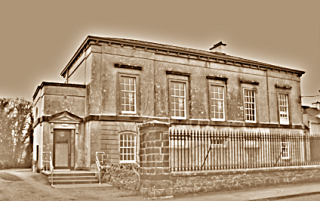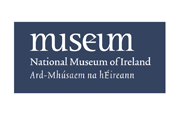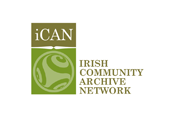The Famine Part 3
Special Presentment Sessions, April 1846.
Murt Molloy
These sessions were held twice in spring and autumn for each barony. They were held under the Grand Juries consisting of the largest property owners mostly landlords who were responsible for the building and the upkeep of roads. They assumed a great importance during the Famine and were called Extraordinary Presentment Sessions. The proposed works had to be sanctioned by the Board of works to be approved or rejected by that body. A special Presentment Session for the barony of Moycullen was held in the Courthouse in Oughterard on the 16th April 1846.
Attendance
Anthony O’Flaherty Esq. Chairman, T. B. Martin Esq. M.P., Ballyinahinch, Capt. O Flahertie, Lemonfield, A.W. Blake Esq. Furbough, James Martin Esq. Ross, George E. Burke Esq. Moycullen, Christopher St. George, Tyrone House, High Sheriff of Galway – all magistrates and landlords. Henry Conmerford, merchant, Galway, Rev. Patrick Horan P.P. Garumna, Rev.O Grady P.P., Spiddal and Minna, Rev. Francis Kenny P.P. Spiddal and Rev Glynn P.P. Killannin.
The Chairman Mr. O’Flahertie addressed the meeting
The Courthouse was completely crowded with people and a large number, unable to gain entrance, remained outside in the pouring rain, anxious to hear the results of the proceedings. The Chairman Mr. O’ Flahertie addressed the meeting and he pointed out the necessity to alleviate the suffering and wants of the people. Huge numbers came considerable distances some 18-20 miles and would be happy to hear any proposals for useful works to be brought forward. Mr. C. St. George proposed that a sum not exceeding £4,185 be applied to continue the coast road from Crusheen to Goldenhead. He felt that no one would oppose this useful work as it was a long neglected locality. Not one penny was spent alleviating its half starving population. The proposal was unanimously agreed to. It was also proposed and agreed that a road between Oughterard and Costello Bay, 12 miles long which would intersect through the middle of the district and provide employment for a large number of people would be constructed. Several other applications for roads through the barony of Moycullen were agreed to amounting to £18,000. A. W. Blake, Furbo proposed that a deputation consisting of Mr.O’Flahertie, chairman, Mr. Martin, Mr. C. St. George be appointed to present the application to the Lord Lieutenant and to inform him of the wants of the district. Those named readily agreed to perform the duty.
Local Projects
The following were approved at the session: John Mons and James Scully to cut down 33 perches of a road over a hill and to fill in the adjoining hollow on the road from Oughterard to the ferry of Drimsna, at Currarevagh. £50 approved for this work. The workers were usually paid 5s a perch.
At the conclusion of the meeting the chairman informed the multitude who remained in the rain out side of the result of the meeting and let them go home. This was done and the poor people accented and departed quietly home dripping wet some to go a distance of 18-20 miles.
The Galway Vindicator commented ‘that the government will have much to answer for if they turn a deaf ear to the application of the famishing people since the only prospect of relief had induced the poor people to under take the fatigue and labour of such a journey across bog and mountain.’
Public Works Approved
The construction of the following roads were approved by the government on 27th June 1846:
- A line road form Oughterard to Costello Bay.
- A line from Knock on the sea coast to near Doon.
- A line road from Turlough to Collinamuck.
- a line road from Danesfield to Oughterard.
- A line from Lettermullen Quay to Lettermullen Bridge.
- A line from Crusheen to Goldenhead.
These roads intersected the barony of Moycullen and ran along the south coast of the barony. The road from Oughterard to Costello Bay was the Seannafeistin or Cloosh Road.
Delays in the Public Works
There were letters of complaint to the Lord Lieutenant from all parts of the barony of Moycullen about the delays in starting the public works during June/July as agreed at the sessions in April in Oughterard. Letters came from H.O’ Flahertie, Knockbane, Moycullen, Rev John O ‘Grady P.P. Spiddal and Rev Patrick Horan P.P., Carraroe.
Rev. O Grady said that there were 300 families in his parish without any means of subsistence out of 900 families. Many were pledging their blankets and clothes and every portable article they had to enable them to live a few days. Rev. Patrick Horan P.P. Kileen and Carraroe told the Lord Lieutenant on June 13th that out of 7,000 people in his parish 2,000 were starving. Rev. Francis Kenny wrote to Dublin Castle 30th June stating that those in his district who required the public works were at the very least 500. The reply to his letter on the 16th July was that there was in progress in his vicinity the following works: that 250 were employed on the new line of road from Knock to Doon on the 11th July and that 200 were employed the same day on the road form Oughterard to Costello Bay. The relief did not begin in the barony until the middle of July.
Oughterard
Rev. Robert Browne wrote to Dublin Castle on 14th July stating that the government had granted £5000 to construct the road from Oughterard to Costello Bay. The first day working there were only 20 men working on it when up to 300-400 should have been set to work. An engineer should be sent to have the works immediately proceeded with and have the poorest and most distressed of the peasantry at once employed. A week later Rev. Browne wrote again to William Stanley, Dublin Castle and complained of the lack of employment. He was told that Capt. Ainslie, the inspecting officer of the public works could be communicated with by letter to Clifden, Connemara.
Moycullen
Fr Pat Fahy wrote in his diary for April/May ‘that the government this year were endeavouring to quiet the people by giving them employment. He feared very much for the month of June/July that the condition of the people would be very bad..
The months of June/ July to August were called the ‘Hungry Months’ when the early potato crop was exhausted and before the new crop of potatoes were harvested.
The public works, which began in the barony of Moycullen in mid July continued with some breaks for the rest of the year. There was a period of suspension in August and September to save and harvest the crops. Work then resumed but it was evident from local reports that the numbers employed and the wages paid were not sufficient to support a man with a large family. Wages in Co. Galway were 10pence a day and this had to support a family of six or seven on average while the price of potatoes and other food stuffs had increased. Potatoes were 9 pence a stone. Fr. Pat Fahy P.P. Moycullen said that the average was 9d a day on public works and 1shilling for a labourer.
Numbers Employed
6,010 between men, women and boys were employed on the roads in the barony of Moycullen on the 1st August – an official figure given by the Board of Works. Reports of the number employed on public works given by the government did not always tally with local reports. There were frequent stoppages and delays with the works as some of the labourers were often left unpaid for two or three weeks while they were starving.
Change of Government June/July 1846
In June 1846 the Conservative Government of Sir Robert Peel fell from power and was replaced by the Whig-Liberal government of Lord John Russell over the Repeal of the Corn Laws. The relief measures introduced by Peel’s government in 1845/46 were generally held to be effective during the famine. The Freeman Journal, a Dublin newspaper, which was no friend of Sir Robert Peel wrote that nobody died of Famine while he was Prime Minister. Dr. Gearóid Ó Tuathaigh, professor of Irish History at NUIG praised the response of Peel’s government to the famine ‘as prompt, energetic and imaginative’. This view has been held by other historians. The change of government in 1846 was the real beginning of death and starvation. The policy of the Whig government of Lord John Russell was Free Trade and Political Economy and that relief measures should not be interfered with the role of private traders or merchants. The government said that small food depots along the western coast of Ireland were to be closed and not reopened. This included two local depots – the Coast Guard Station and the Constabulary Station at Oughterard.
Failure of the Potato Crop July/August 1846
In 1846 the blight struck much earlier then in 1845. In August the Galway Vindicator reported, ‘the ruin of the potato in every spot through the entire country. Sun Inspector Martin Clune at Oughterard reported to the Inspector General of the Constabulary in Dublin on the 31st august that ‘ no part of the crop in the district has escaped the blight and it is almost all destroyed, the early and late crop.’ Violet Martin of Ross described the coming of the potato blight in 1846 in her diary ‘ The cold fear for the safety for the safety of the potatoes fell again upon the prople: the paralysis certainly followed: the green stalks blackened; the potatoes turned black slime and the avalanche of starvation, fever and death fell upon the country.’ Unlike the blight of the potato crop 1845 which was partial, the potato failure of 1846 was total.
Reaction to the Potato Failure
There was an immediate reaction to the total failure of the crop in the summer of 1846 throughout the barony of Moycullen. There was a renewed demand for relief works and provisions of food. Memorials were sent to the Lord Lieutenant seeking relief.
Memorials to the Lord Lieutenant.
A memorial was sent from the inhabitants in the parish of Oughterard and its vicinity in the parish of Kilcummin to the Marquis Bessborough, Lord Lieutenant on the 7th September. They said that no less than 1.000 individuals were short of food in the parish because the potato crop had been smitten with the rot. No provisions were brought to the district except vendors who buy meal in Galway and sell at Oughterard at the enormous rate of 3s per stone – altogether beyond the reach of the destitute poor. They requested the Lord Lieutenant to order some Indian meal to be sent to Oughterard to enable the poor to procure food at a cheap rate as the current prices are so high at the Oughterard Market. The people were unable to bear the pangs of hunger but had no other prospect but inevitable starvation and famine. Some had died of extreme want which will be the fate of hundreds and of thousands unless prevented by the immediate action of the government. The district was visited by sickness. Robert Browne, Rev Arthur O’Connor, Rev James Casteaux C.C., Dr. O’ Leary, dispensary doctor, and other farmers signed the memorial.
The reply on the 18th September was that the memorial had been referred to Sir Randolph Routh, Dublin Castle.
2nd Memorial
On the 23rd September a memorial was sent from the inhabitants of Gurtrevagh near the post town of Oughterard to the Earl of Bessborough, the Lord Lieutenant stating the they were reduced to a state of extreme distress and severe want from the total failure of the potato and from a hail shower in June that totally destroyed their wheat crop. They were now without food or employment. They earnestly requested the Lord Lieutenant to order some provisions to be sent to Oughterard and to order that employment be given at once by the Board of Public Works with such wages as to enable them to provide for themselves and their families.
This memorial had 28 signatures: Joyces, Connelly’s, Molloys, Fahy, Walsh, Gill, Rutledge etc also Robert Browne, Dr. John Davis and Arthur O’Connor. The reply by T.H. Redington, Chief Secretary to the Rev. Robert Browne on the 27th September was that sessions were to be convened for the barony of Moycullen without delay.
Moycullen
Anthony O’ Flahertie, Knockbane Moycullen wrote to the chief Secretary, Dublin Castle on the 19th September on behalf of the poor of Moycullen. He called for prompt and urgent measures to avert the alarming amount of distress and misery of the locality. Unless immediate steps were taken they would soon witness all the horrors of almost total famine in the entire district. He called for employment to be given to the people and said that useful works had been suspended in the barony and should be resumed at once to afford employment to the poor as an awful calamity had visited them. He enclosed a letter from Fr. Pat Fahy P.P. Moycullen which stated, ‘We are in the throes of the famine and its consequences because of the state of the potato crop.’
The reply was that the letter would be sent to the Board of works for their attention and that directions had already been given to carry on all works for which funds remained available.
Roscahill/ Killannin
On the 22nd of September James Martin, Ross House sent a letter to the Lord Lieutenant on behalf of the people. He said that a large body of agricultural labourers had come to his residence the previous day and presented him with a document, which he enclosed. They stated that their destitution and misery was extreme and that they had no means of support. He believed that their assertions were true and that they required speedy aid. He called on the public works to be at once resumed to ward off the evil of death. He enclose a letter from Fr. Glynn PP. ‘who is a most excellent, loyal and well disposed man.’ Fr. Glynn said in his letter that the people were in a deplorable state and that death stared them in the face. Their lives and those of their children were on the verge of death, in need of food and work. They are all honest, simple and peaceably disposed.
The reply was that the Lord Lieutenant had given orders to proceed with all unfinished works for which funds were available and that special sessions for the barony of Moycullen were to be convened without delay.
Rev. Fr. J. Glynn P.P. Killannin wrote to the Galway Mercury on the 5th October and said that the misery in his paraish was utterly indescribable. Want of food and clothes meant that hundreds would not survive the winter unless the government made an effort against the common enemy Death. The people had nothing but putrid potatoes to sustain them and they could not work on such subsistence. Able bodied who had been so exhausted by starvation since last May were not able to work or earn for their families. Yet they are resigned to the Divine will. Fr. Glynn thanked Thomas L. Synnott, Dublin for a bank bill of £15 for the poor of the parish.
Castlekirk Oughterard
John Brice Blake wrote to the Under Secretary at Dublin Castle on the 4th September. He said that the minds of the people on both sides of Lough Corrib were brought to such a state due to total failure of the potato crop and that unless some employment was given the peace and the quiet of the country could not continue. Numbers of them had been talking of drowning themselves rather than seeing their families dying before their faces or being obliged to resort to violence for their support. J. B. Blake wrote a gain to Dublin Castle on the 15th October. He repeated that the peace in this part of the country could not hold much longer if meal was not sent to them. Numbers of families were starving eating just cabbage leaves. Indian meal could be brought by water form Galway to Maam. They would be delighted to buy it at the current rate in Galway 1s 9d a stone or £14 a ton. Where ever he went he saw nothing but hunger, pale faces and emaciated figures.
The reply to his first letter was that the lord Lieutenant would direct that sessions be commenced for the barony of Ross without delay.










Comments about this page
Excellent series of articles with lots of fascinating details. Hope you’ll follow up with more on this subject.
Add a comment about this page